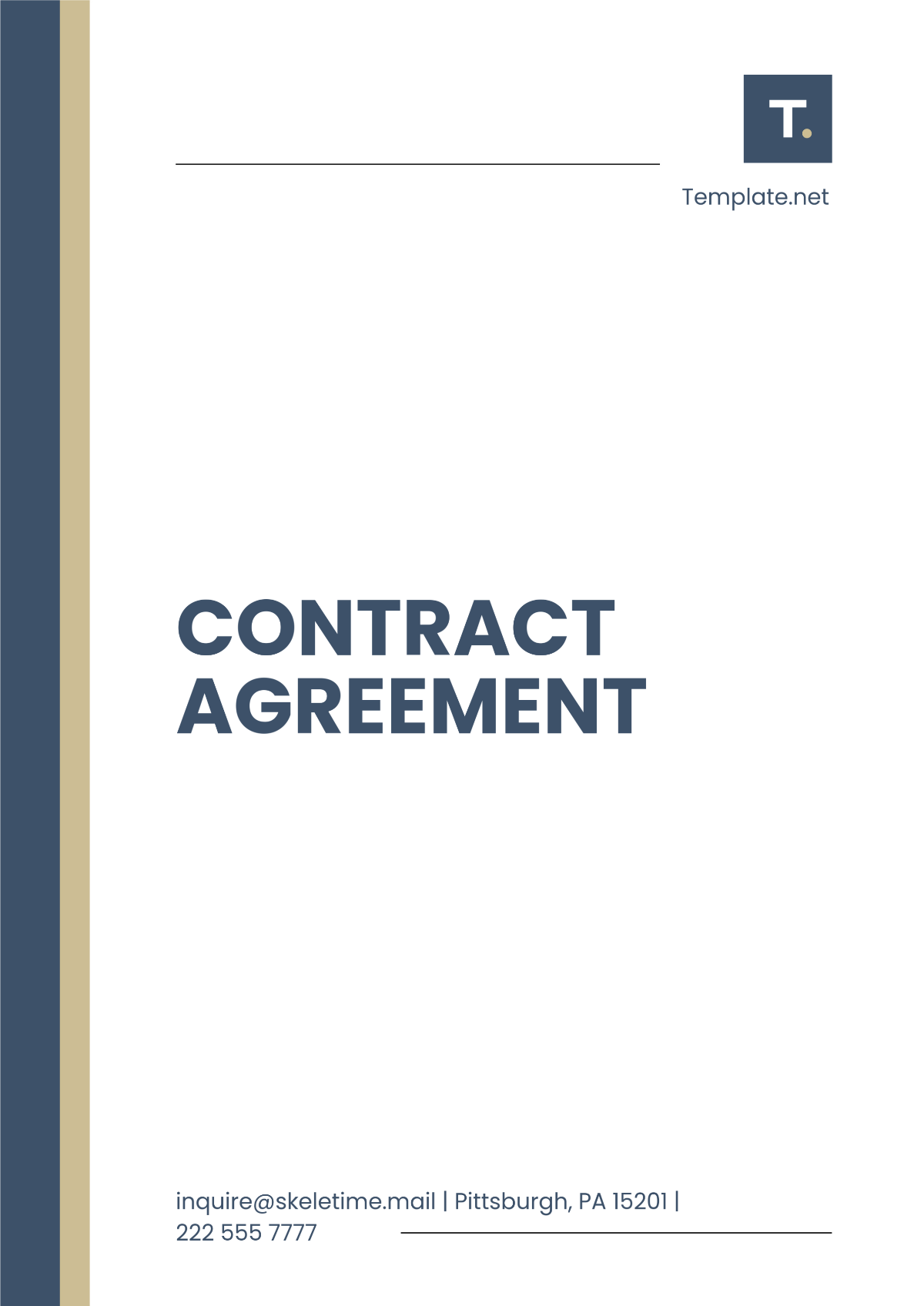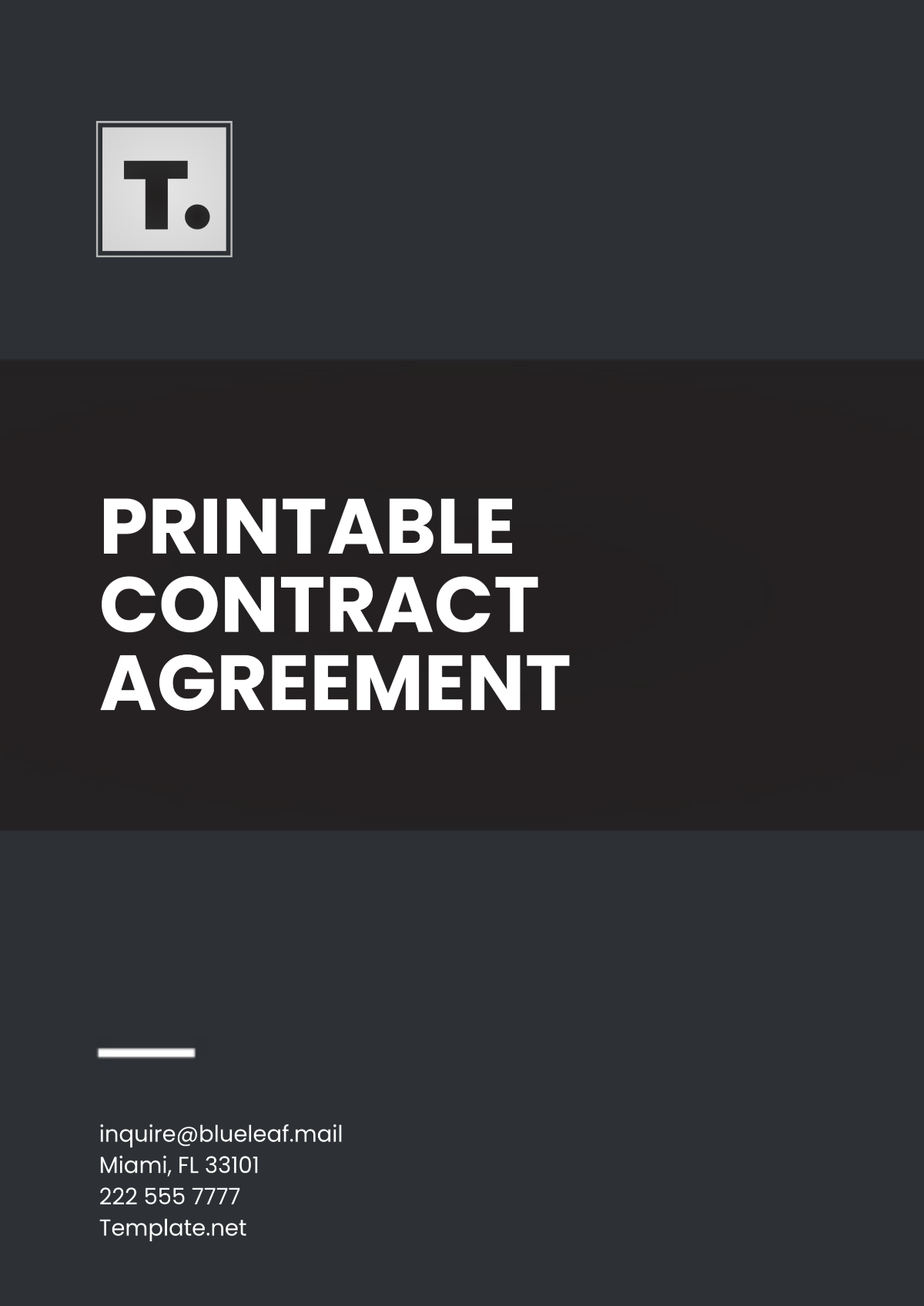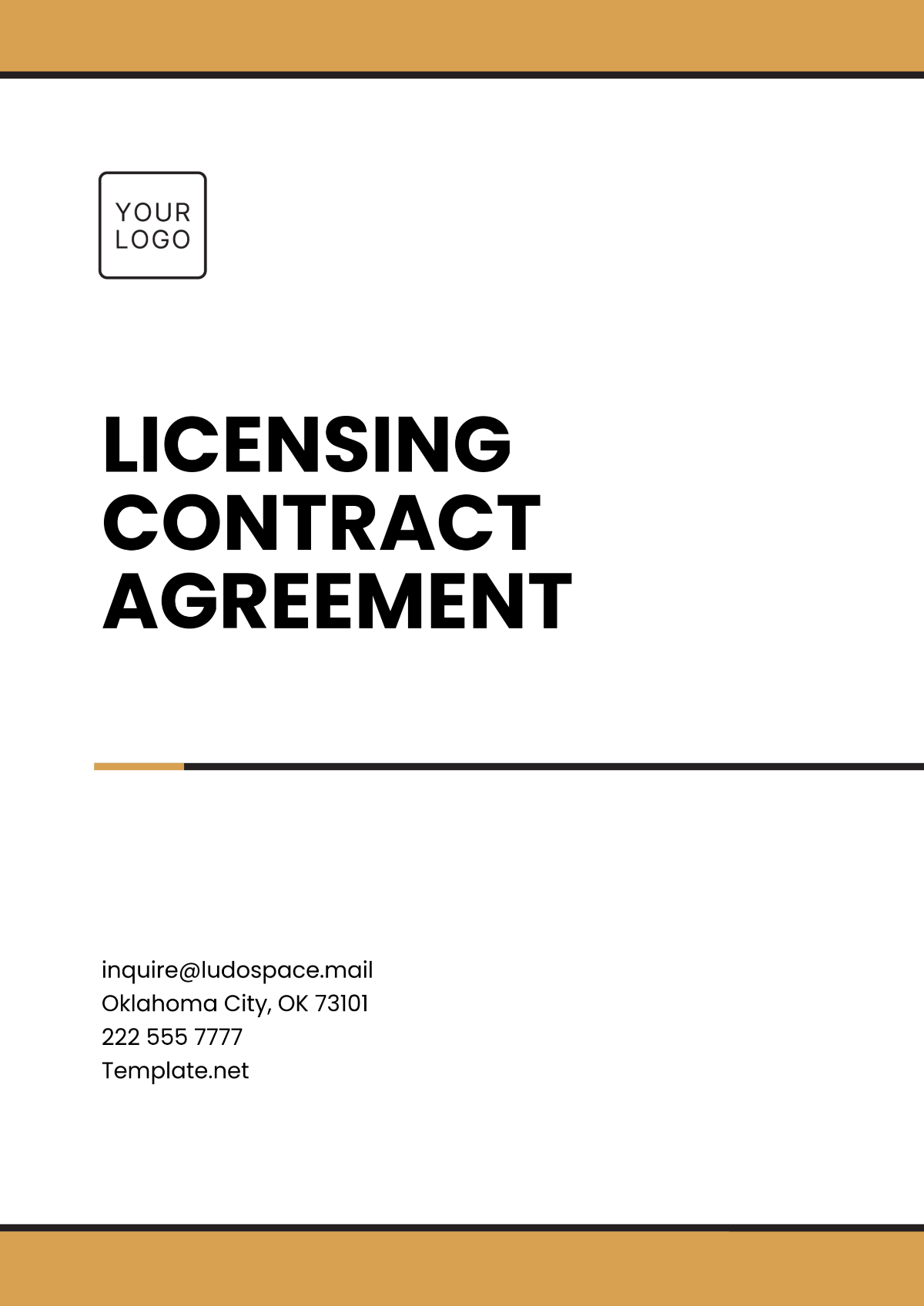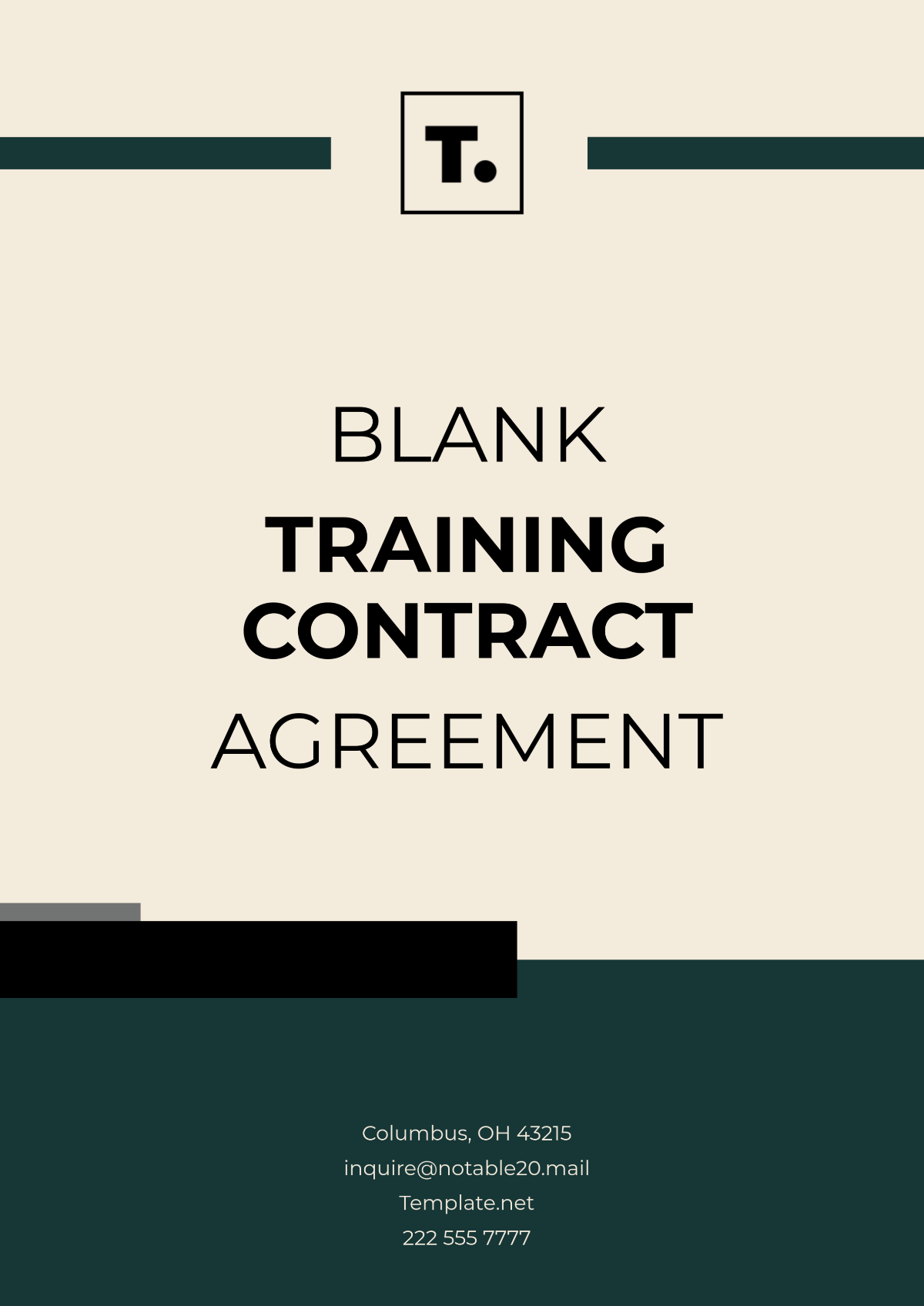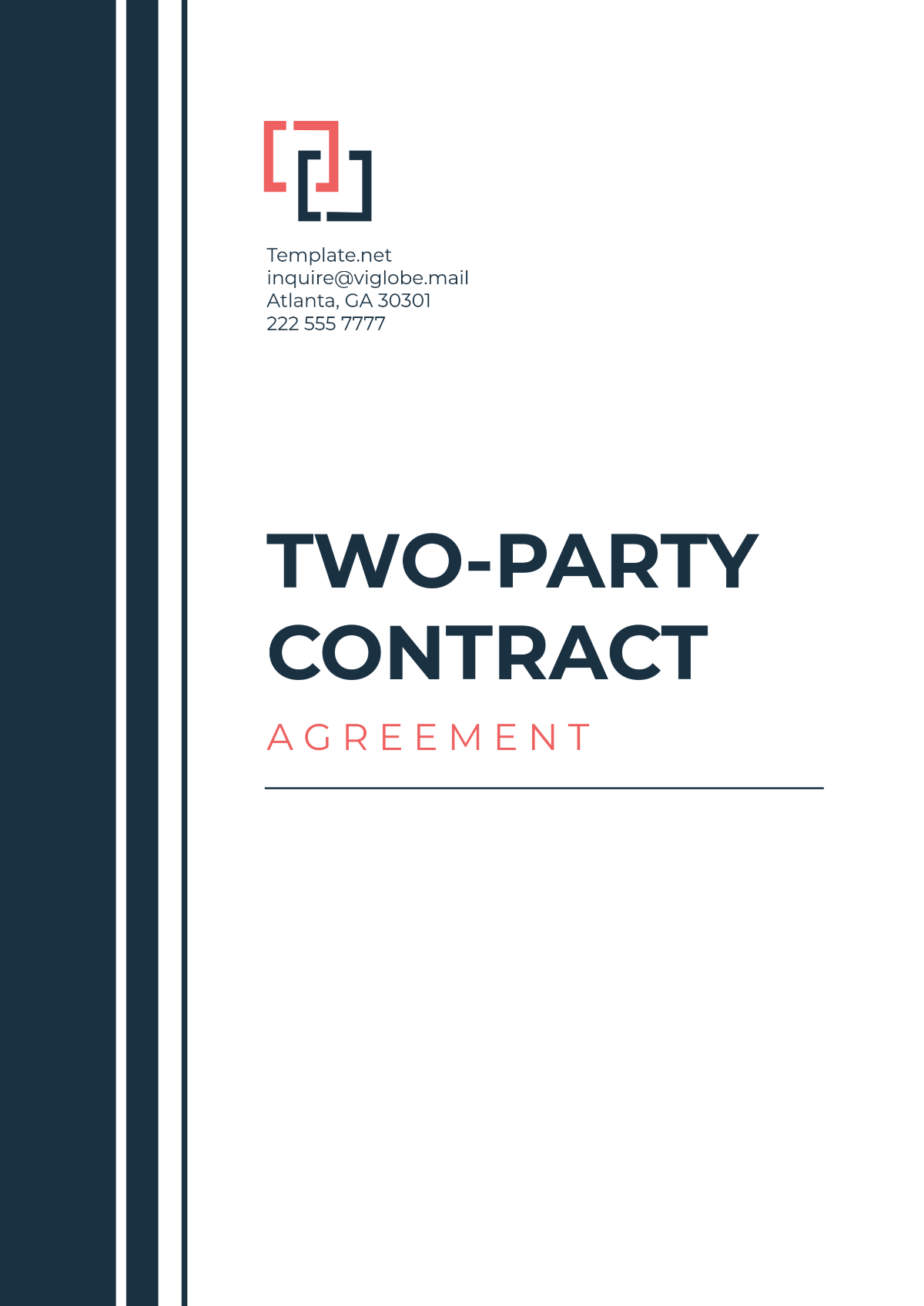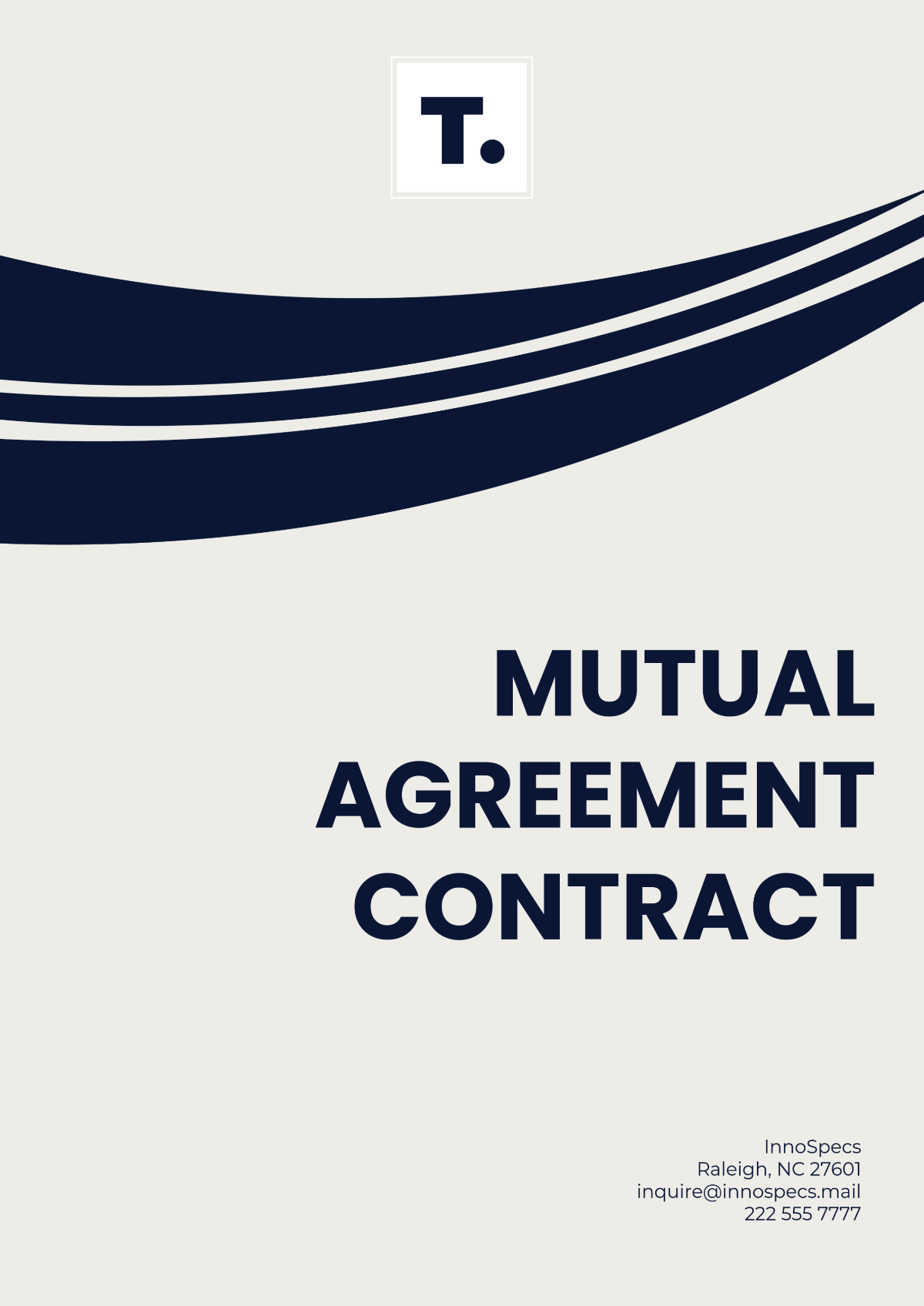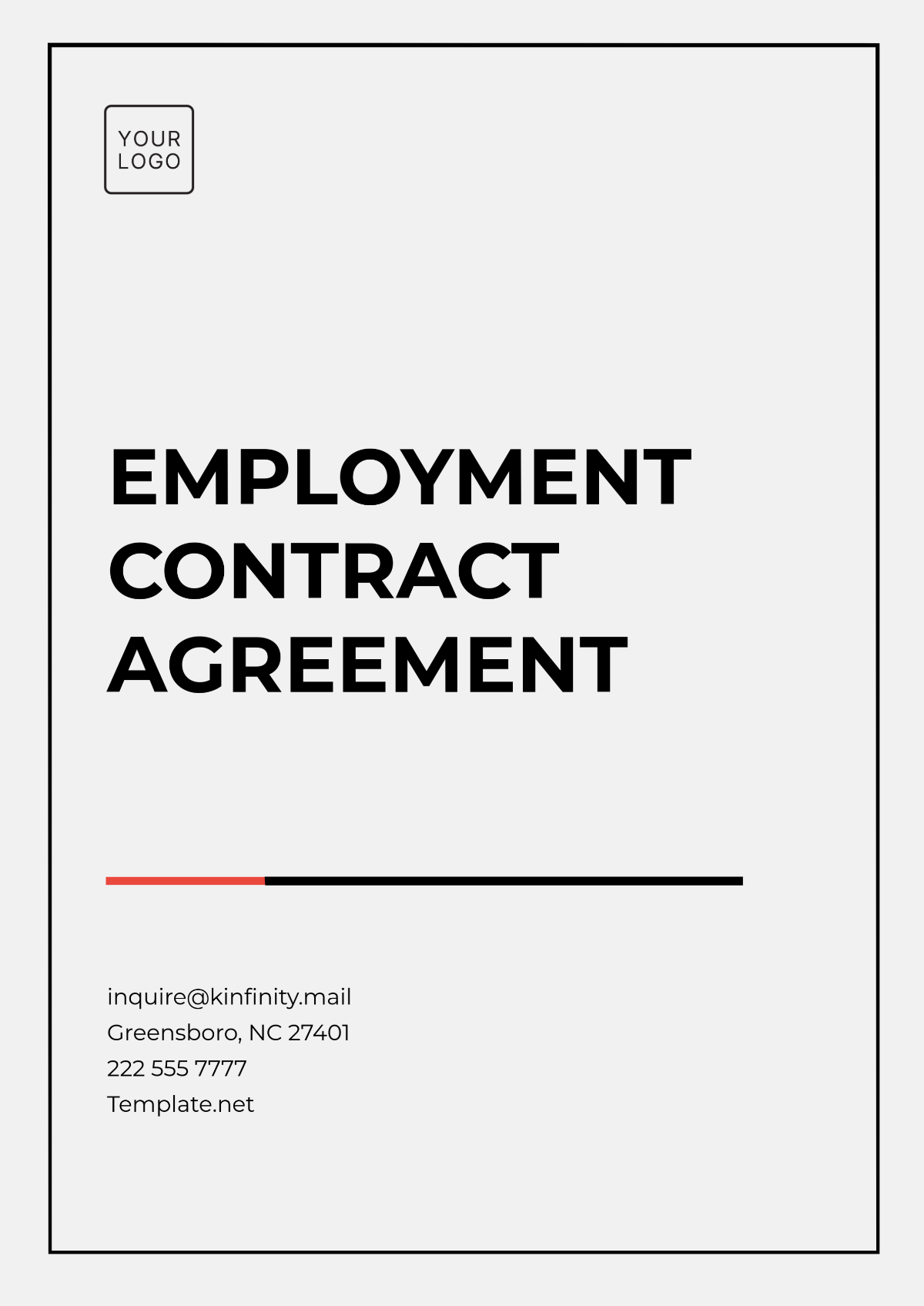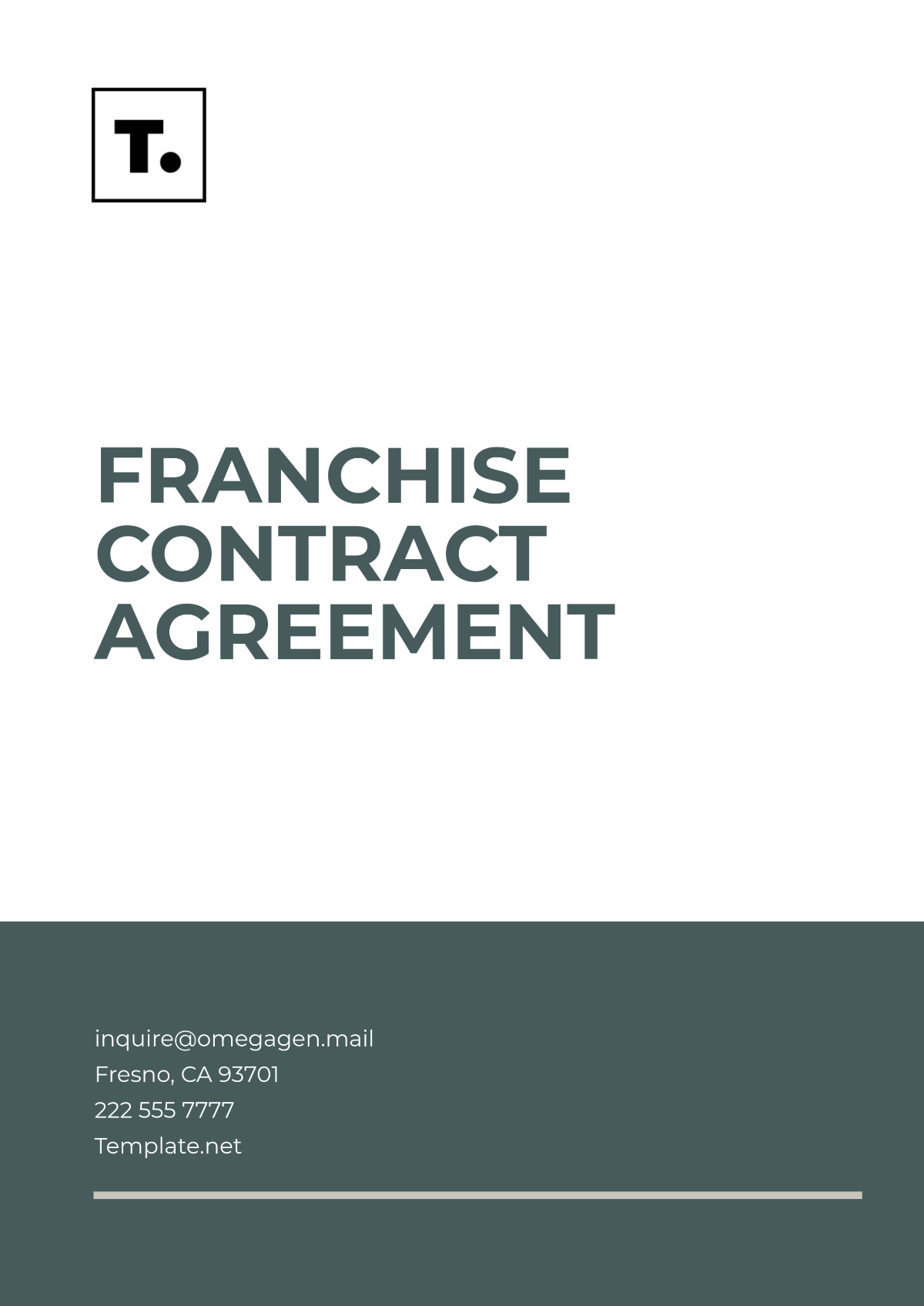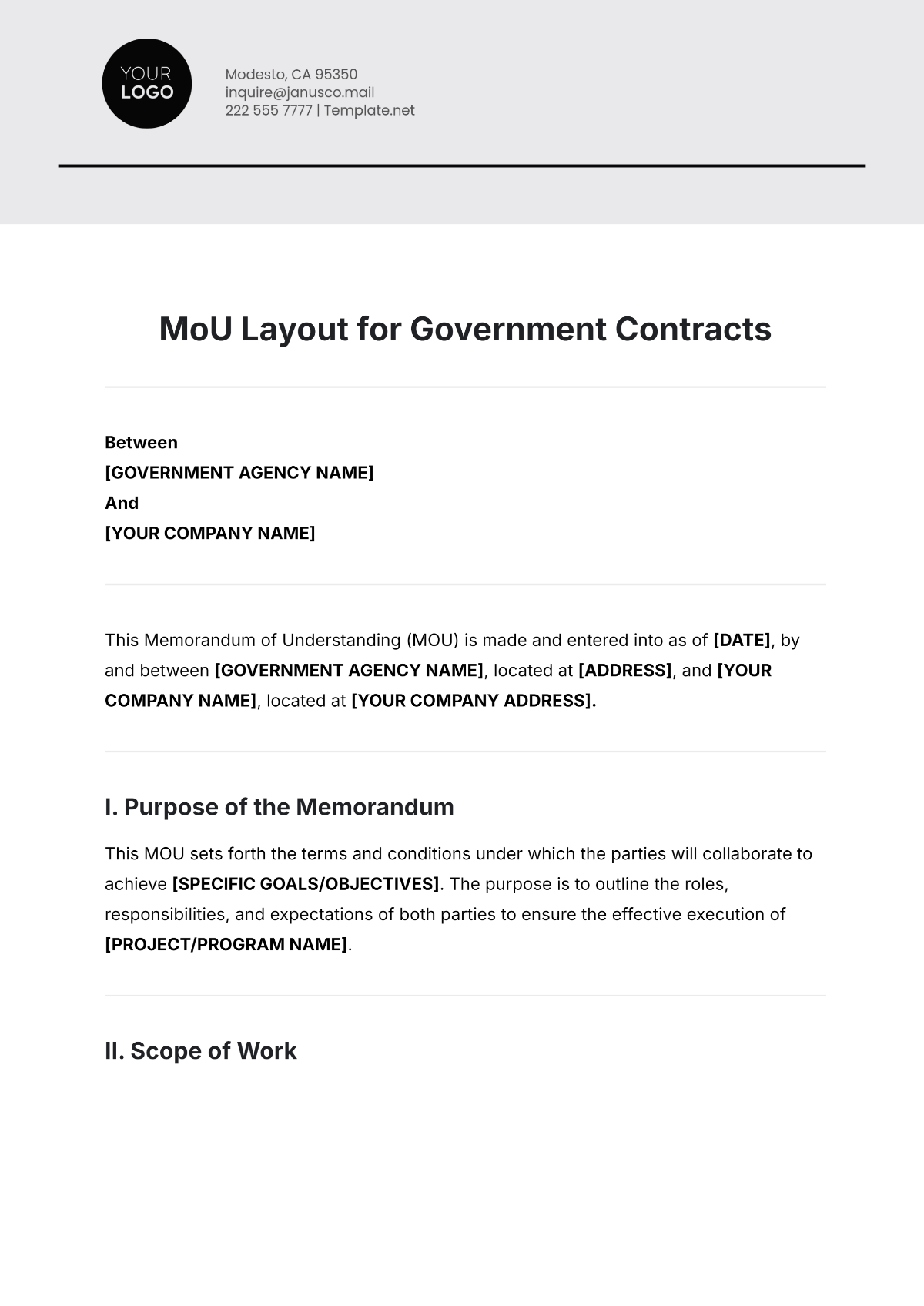Sales Handbook On Contract Termination & Implications
I. Introduction to Contract Termination
At [Your Company Name], understanding the intricacies of contract termination is crucial for maintaining professional relationships and mitigating potential risks. Contract termination refers to the conclusion of a legally binding agreement between parties involved in business transactions. This serves as a comprehensive guide to navigating this critical phase of business dealings.
Contracts often contain clauses specifying conditions under which either party can end the agreement. Whether due to completion, breach, mutual agreement, or other stipulations, terminating a contract warrants careful consideration and adherence to legal obligations.
Our commitment at [Your Company Name] is to equip our sales team with the knowledge and tools necessary to understand, initiate, and navigate contract terminations effectively. This guide will delve into the various aspects of contract termination, providing insights, best practices, and strategies to mitigate associated risks.
By comprehensively understanding contract termination, our sales professionals can ensure that this process is approached with professionalism, foresight, and adherence to legal requirements, ultimately safeguarding the interests of all involved parties.
II. Termination Clauses and Conditions
Termination clauses outline the circumstances and conditions under which a contract can be legally concluded by either party involved. These clauses are pivotal components of any agreement, as they delineate the rights and responsibilities concerning termination.
A. Types of Termination Clauses
Contracts commonly feature various termination clauses, including:
For Cause: Specifies situations where termination is permissible due to specific reasons, such as non-performance, breach of contract terms, or regulatory violations.
Without Cause: Provides the option for termination without explicit reasons, often with specific notice periods or provisions for compensation.
B. Conditions Triggering Termination
Understanding the triggering events or conditions for contract termination is essential. These conditions may include:
Failure to meet contractual obligations within specified timelines or quality standards.
Breach of confidentiality, non-compete, or other critical clauses.
Changes in circumstances, such as force majeure events or regulatory changes affecting the contract's feasibility.
Our emphasis at [Your Company Name] is on thorough comprehension of these clauses and conditions to navigate contract terminations effectively. Recognizing the nuances within these clauses allows our sales team to identify potential risks, assess obligations, and act accordingly to protect our interests and those of our partners or clients.
By fostering a deep understanding of termination clauses and conditions, we empower our sales professionals to navigate contractual agreements adeptly, ensuring compliance, and fostering productive business relationships.
III. Legal and Regulatory Considerations
At [Your Company Name], adherence to legal and regulatory frameworks is paramount in every aspect of our business, including contract terminations. Understanding the legal landscape governing contract termination ensures compliance and mitigates potential risks associated with this process.
A. Jurisdictional Frameworks
Different jurisdictions have specific laws and regulations governing contract terminations. Our sales team is encouraged to familiarize themselves with the legal nuances applicable to their respective regions or industries. Additionally, seeking legal counsel or expert advice when navigating complex termination cases is highly recommended.
B. Compliance Requirements
Compliance with legal obligations during contract termination is imperative. This includes:
Adherence to notice periods and procedural requirements stipulated within contracts or local laws.
Ensuring termination actions align with statutory regulations and do not infringe upon any party's rights.
C. Risk Mitigation through Legal Understanding
By equipping our sales professionals with a comprehensive understanding of legal and regulatory considerations, we aim to:
Minimize legal exposure and potential disputes arising from contract terminations.
Ensure that termination actions are conducted within the confines of the law, safeguarding the reputation and interests of all involved parties.
At [Your Company Name], we prioritize compliance and ethical practices. Our commitment to legal and regulatory adherence underscores our dedication to conducting business with integrity and responsibility.
IV. Contract Review and Assessment
At [Your Company Name], a meticulous review and assessment of contracts are foundational steps in managing the potential complexities of contract termination. Conducting a comprehensive evaluation of contractual agreements allows our sales team to navigate terminations with clarity and foresight.
A. Importance of Review
Thoroughly reviewing contracts before initiating termination is essential. This process involves:
Identifying and understanding termination clauses, notice periods, and obligations upon termination.
Assessing potential risks, liabilities, and implications associated with contract termination.
Verifying compliance with contractual terms and legal requirements.
B. Risk Assessment
Our sales professionals are encouraged to assess various aspects before proceeding with contract termination, including:
Financial implications such as termination fees, penalties, or reimbursement obligations.
Impacts on ongoing projects, services, or partnerships.
Legal ramifications and potential disputes arising from termination.
C. Preparation and Due Diligence
A well-documented contract review process ensures:
Clear documentation of the rationale behind termination decisions.
Alignment with company policies, regulatory requirements, and ethical standards.
Effective communication with involved parties based on a thorough understanding of contractual obligations.
By emphasizing the importance of contract review and assessment, [Your Company Name] equips its sales team with the tools necessary to navigate termination processes prudently. This approach ensures that terminations are conducted transparently, professionally, and in adherence to contractual and legal obligations.
V. Notification and Communication Protocols
At [Your Company Name], effective and transparent communication is key when initiating contract terminations. Proper notification protocols ensure that all involved parties are informed in a timely and professional manner, aligning with our commitment to maintaining strong business relationships.
A. Guidelines for Communication
When communicating contract terminations, it is essential to:
Follow the specified notification procedures outlined in the contract.
Clearly articulate the reasons for termination, adhering to professional and respectful language.
Ensure the communication is delivered within the stipulated notice period or timeframe.
B. Stakeholder Involvement
Identify and involve relevant stakeholders in the communication process, including:
Internal teams or departments impacted by the termination.
External parties, such as clients, partners, or vendors affected by the contract conclusion.
C. Transparency and Clarity
Communications regarding contract termination should emphasize:
Transparency regarding the decision-making process leading to termination.
Clarity on the implications of termination for all involved parties, including any next steps or transition plans.
VI. Mitigation and Transition Strategies
At [Your Company Name], proactive mitigation and smooth transitions post-termination are paramount. Strategies focus on minimizing disruptions and facilitating seamless handovers. Steps include:
Resource Reallocation: The process of transferring, or the reallocation of resources, to other projects or clients is a strategic move.
Transition Plans: It is crucial to clearly outline each person's responsibilities to ensure a smooth and efficient transition process.
Client or Partner Engagement: Maintaining relationships post-termination through transparent communication and support.
Legal Compliance: Ensuring that there is strict adherence to all legal obligations and taking steps to minimize the potential for disputes to arise.
Continuous Monitoring: Regularly assessing post-termination impacts to address any emerging issues swiftly.
By implementing these strategies, we are not only safeguarding our relationships with clients and partners, but also upholding our unwavering commitment to maintaining a high degree of professionalism in every business interaction we partake in.
VII. Negotiation and Dispute Resolution Process
Effective negotiation at [Your Company Name] involves transparent discussions, clarifying objectives, and seeking common ground for mutually beneficial terminations. Dispute resolution at [Your Company Name] aims for fair, timely resolutions to conflicts, preserving relationships and upholding professionalism. The following is the process for dispute resolution:
VIII. Documentation and Record-Keeping
At [Your Company Name], meticulous documentation and record-keeping during contract terminations are critical for clarity, compliance, and future reference. Thorough documentation serves as a comprehensive account of the termination process, encompassing:
Termination Notices: Copies of formal termination letters or notices sent to involved parties.
Communication Records: Detailed logs of all communication regarding the termination, including emails, memos, and meeting minutes.
Contractual Agreements: Copies of the original contract and any subsequent amendments relevant to the termination.
Evidence and Justifications: Records supporting the rationale behind the termination decision, including performance evaluations or compliance assessments.
Negotiation Details: Documentation of negotiation outcomes, agreed-upon terms, and any compromises reached.
Maintaining detailed records not only ensures compliance with contractual obligations and legal requirements but also serves as a reference for future dealings. This commitment to comprehensive documentation aligns with [Your Company Name]'s dedication to professionalism and transparency in business practices.
